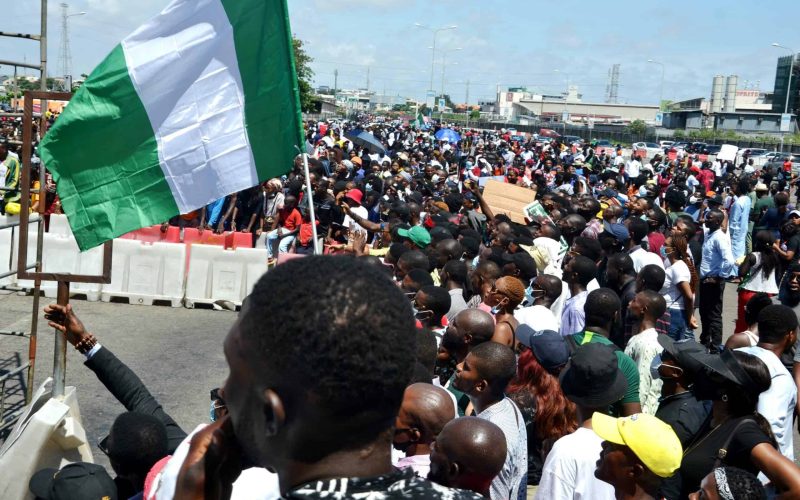One common feature in many countries today is the declaration of various strikes and protests.
It has become common for people to go on strike or declare their displeasure with any governing body or sitting government of a country.
While people need to speak up, especially when they are dissatisfied about how they are being treated or when their wages aren’t paid on time, there are processes and steps to be taken to ensure one is being heard.
One of these steps includes Strikes and Protests. Often, people resort to this when the company’s governing body or the government in power isn’t listening and yielding to their demands.
However, it is imperative to note a striking difference between embarking on a strike and going all out for a protest.
This article will enlighten you on the differences between going on a strike and protesting in an organization or a company.
Strike
In understanding what strikes mean and represent, it is essential first to understand the meaning of industrial disputes.
According to the Industrial Disputes Act, 1947, Section 2(k), industrial disputes mean any dispute or difference between employers and workers or between workers and workmen that is connected with the employment, non-employment, or a breach in terms of employment or with the conditions of labor of any person.
In other words, for a strike to occur, there must be a contract breach between an employer and her workmen or between workers of different ranks. Industrial disputes generally describe any conflicts that occur within a particular existing industry.
Hence, for an industrial dispute to occur, there must be a real dispute, and the person and the parties that raised the dispute must have a director with at least a substantial interest.
Strike action is a potent tool used by trade unions or other labour associations to ensure that their demands are met.
Most strikes involve industrial workers quitting work to mount pressure on their employers and ensure that their needs are accepted and met.
Whenever workers decide to cease or stop their jobs collectively because of their employers’ perceived insensitivity in a particular industry, a strike is said to have occurred.
According to the definition offered by the Industrial Disputes Acts of 1947, a strike is a cessation of work by a group or body of persons employed in the industry acting in combination.
A strike can also be referred to as the outright refusal of any person previously employed in a particular industry.
For a strike to occur, a group of workers must unanimously decide to stop working to protest what they think is unfair.
Causes of Strikes
There are many causes of strikes, they include;
- Dissatisfaction with any company policy, whether a current or previously existing one policy.
- Salary, wages, and incentive issues.
- Increments that aren’t up to the mark or are not adequately implemented.
- Wrongful dismissal or discharge of employees and workmen.
- Withdrawal of any previous privilege or concession.
- Refusal to pay bonuses, profits, provident funds, or gratuities of workers and employees.
- Closure of any part of the company or retrenchment of workmen, be it partial or general.
- Any dispute whatsoever that is connected with minimum wages.
Different Types of Strike
It is also imperative to understand that there are different types of strikes. They include:
1. Economic Strike
In this type of strike, workers and employers generally stop their work to enforce their economic demands, such as the payment of their wages, salaries, and bonuses.
In these strikes, workers mostly ask for the payment or increment of their allowances and salaries.
2. Sympathetic Strike
A sympathetic strike is said to occur when a group of workers in one unit decide to embark on a strike in sympathy with other workers of another team who are already on strike.
Most of the time, this is done so that members of other unions join the strike to show support and solidarity with other associations.
3. General Strike
This strike is said to occur when members of all unions or the majority of the unions in a region, a particular industry, or a company decide to embark on a strike to force the enforcement of the common demands of all workers on their employees.
In most cases, general strikes create political pressure on a ruling government rather than on an employer of labor.
In some cases, a generalized strike often results as an extension of sympathetic strikes.
4. Sit-down Strike
In this type of strike, workers don’t exempt themselves from their place of work.
Instead, they go to their offices and sit down, doing nothing, halting production activities for the company or industry.
Other names for this type of strike include pen-down or tool-down strike. In this case, workers must show up to their workplace but not work and not vacate the premises until closing.
This action makes it difficult for employers to bring in temporary workers, defy the union, or take workers’ jobs.
5. Slow Down Strike
This type of strike is similar to the sit-down strike; however, there is little difference.
During the sit-down strike, workers are mandated to resume their places of work but not engage in production activities.
However, during the slow-down strike, workers are also required to show up to their workplace and work but reduce the production rate in an organized manner.
Protests
Protests, on the other hand(which may also be referred to as demonstrations, remonstrances, or Protests) are public expressions of disapproval, dissent, and objection to a particular action or idea, especially a political one.
Protests can take any form, from mass demonstrations to individual statements. Often, protesters are seen to organize a protest as a way of making sure that their opinions are heard and assessed publicly.
Sometimes, they may undertake a direct action, as such, attempting to enact their desired changes themselves.
Although protests are supposed to be part of the system and demonstrate a peaceful campaign to achieve a particular goal, sometimes, things can quickly go south without care.
In conclusion, while strikes often include protests, some protests may not necessarily include Strikes.









I had never thought of the “different types” of strikes. Thank you for this eye-opening article.